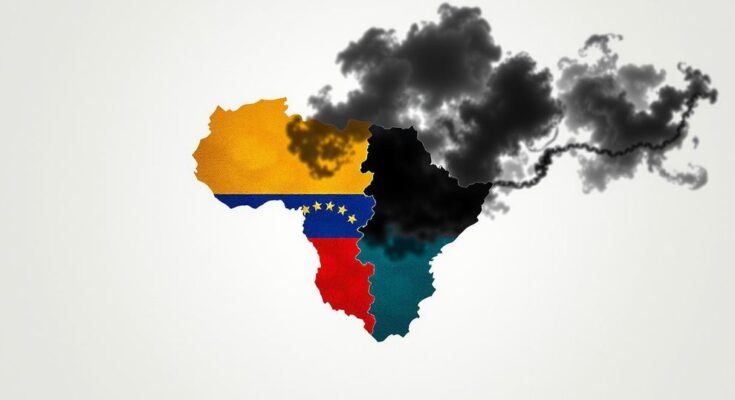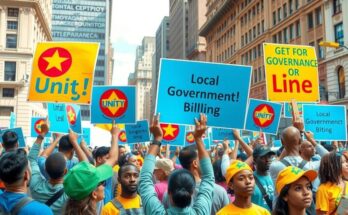The United States reaffirms support for Guyana’s sovereignty over the contested Essequibo region, leading to accusations from Venezuela’s Foreign Minister Yvan Gil towards Secretary of State Marco Rubio. Venezuela has taken actions to assert claims over the region while defying international legal rulings and agreements. The situation is exacerbated by Venezuela’s recent initiatives to exploit the area’s resources and enhance military presence despite diplomatic agreements to de-escalate tensions.
On January 27, U.S. Secretary of State Marco Rubio reaffirmed the nation’s support for Guyana’s sovereignty over the disputed Essequibo region, which has drawn strong criticism from Venezuela. In response, Venezuelan Foreign Minister Yvan Gil labeled Rubio “an enemy of our country,” accusing him of harboring an obsession aimed at damaging Venezuela’s interests.
Essequibo is a resource-rich area that comprises over two-thirds of Guyana’s territory and has been under Guyanese control for over a century. Gil claimed Rubio supports the aspirations of the Guyanese government, which he asserts undermines Venezuela’s historical rights to the region. He emphasized that Guyanese officials bear responsibilities to international law and regional peace.
Gil stated that resolving the Essequibo dispute should comply with the 1966 Geneva Agreement. Historically, the territory was recognized as belonging to British Guiana since a 1899 arbitration established the border. Since Guyana’s independence in 1966, a U.N.-supported treaty has mandated that conflicts be resolved through international mechanisms.
After a failure to agree in 2018, U.N. Secretary-General Antonio Guterres referred the matter to the International Court of Justice (ICJ). Guyana has upheld its commitments to U.N. resolutions, while Venezuela has acted contrary to international legal obligations, challenging the ICJ’s jurisdiction over the issue.
On December 5, 2023, Maduro initiated the establishment of a Venezuelan state named “Guayana Esequiba,” publicly claiming Essequibo as part of Venezuela and planning to exploit its resources. This move followed a controversial referendum deemed illegal by the Organization of American States. Despite a December 15 agreement between both nations to avoid military action, Venezuela enhanced its military presence along the disputed border.
In March 2024, the Venezuelan National Assembly passed legislation recognizing Essequibo as part of Venezuela, but its implementation awaits a Supreme Court ruling. Analysts assert that Maduro is leveraging this dispute for political gain ahead of the July 2024 elections. Recently, Venezuela completed a bridge linking its territory to Ankoko Island, heightening tensions in the region.
The ongoing territorial dispute between Venezuela and Guyana centers on the Essequibo region, a resource-rich area critical to both nations. Historically, the border was defined by an 1899 arbitration that granted sovereignty of Essequibo to British Guiana, now Guyana. Despite U.N. treaties mandating resolves through international courts, Venezuela continues to challenge these agreements, complicating the diplomatic landscape in the region.
The confrontation regarding the Essequibo region reveals deep-seated historical grievances and ongoing geopolitical tensions between Venezuela and Guyana. With international law challenged by Venezuela’s actions and allegations of disregarding established treaties, the dispute remains unresolved, potentially impacting regional stability. As both nations navigate this contentious issue, the path forward necessitates robust international engagement and adherence to legal frameworks.
Original Source: www.voanews.com




